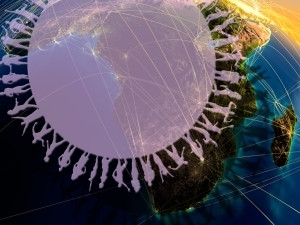
Access to broadband could be the universal catalyst that lifts developing countries out of poverty and puts access to healthcare, education and basic social services within reach of all.
This is according to the United Nations (UN) Broadband Commission for Digital Development, and comes on the back of a meeting in Dublin at the weekend. During the event, the commission reiterated a call to the international community to recognise the "transformational potential of high-speed networks".
The commission called on the international community to ensure broadband penetration targets are specifically included in the UN post-2015 Sustainable Development Goals. It urged governments and international financing bodies to work to remove current barriers to investment.
The commission includes some of the world's most prominent leaders from the tech sector, government, academia and UN agencies. Established in 2010, it is a top-level advocacy body that focuses on strategies to make broadband more available and affordable worldwide, with a particular emphasis on accelerating progress towards the eight UN Millennium Development Goals.
The commission is chaired by president Paul Kagame, of Rwanda, and Mexico's Carlos Slim Hel'u, with International Telecommunication Union (ITU) secretary general Dr Hamadoun I Tour'e, and UN Educational, Scientific and Cultural Organisation director-general Irina Bokova as co-vice-chairs.
Mega growth
"Globally, as much as 95% of telecommunications infrastructure is private sector-funded, but better incentives are urgently needed if investment is to expand in line with the coming exponential growth of connected users and so-called 'Internet of things' data streams," says the commission.
In the world's 200 biggest cities, the number of connected devices is forecast to increase from an average of 400 devices per square kilometre to over 13 000 devices per square kilometre by 2016.
Denis O'Brien, chairman of the Digicel Group and one of the founding members of the commission, says: "The long-sought panacea to human poverty may at last be within our reach in the form of broadband networks that empower all countries to take their place in the global economy, overcoming traditional barriers like geography, language and resource constraints."
O'Brien said companies provide mobile services in some of the world's most challenging environments and disadvantaged countries, such as Haiti and Papua New Guinea.
To drive faster broadband rollout, O'Brien has called on governments to lower spectrum licence fees and advocated for the establishment of a "champion's league" index that tracks best practice in broadband investment and deployment.
Rwandan example
Kagame notes that broadband and ICT can deliver more efficiency in education, health, finance, banking and other sectors. He says Rwanda has adopted a broadband model based on effective public private partnership, guided by what works on the ground.
"This has allowed broadband and ICT to continue to play an important role in the progress we have made towards the achievement of the Millennium Development Goals."
Rwanda is currently rolling out a nationwide 4G mobile broadband network through a public-private partnership.
Kagame this weekend urged commissioners to go beyond infrastructure and work to ensure its use. "Our initial focus was on connectivity: to put the infrastructure and tools in place to connect citizens to the digital era. Onwards, our efforts need to focus on unleashing the smart use of broadband to help people use services in ways that will significantly improve their lives."
ICT uptake
The ITU - the UN body responsible for all issues concerning ICT - says the uptake of ICT is accelerating worldwide, with mobile broadband recognised as the fastest-growing technology in human history.
The number of mobile phone subscriptions now roughly equals the world's total population of around seven billion, while over 2.7 billion people are online. Active mobile broadband subscriptions now exceed 2.1 billion - three times higher than the 700 million wireline broadband connections worldwide.
Most encouragingly, says the ITU, most of this progress has taken place in the developing world, which has accounted for 90% of global net additions for mobile cellular and 82% of global net additions of new Internet users since early 2010, when the UN Broadband Commission was set up.
"That translates to 820 million new Internet users and two billion new mobile broadband subscribers in developing countries in just four years," says Tour'e.
Last September, at the UN Broadband Commission's eighth meeting in New York, the group released the second edition of its global snapshot of broadband deployment, entitled The State of Broadband 2013 Universalising Broadband. The report features country-by-country rankings based on access and affordability.
In that report, SA ranked 111th out of 183 economies for fixed broadband access, 62nd out of 170 economies for mobile broadband access, and 92nd out of 192 economies in terms of percentage of inhabitants using the Internet (41%).
Share